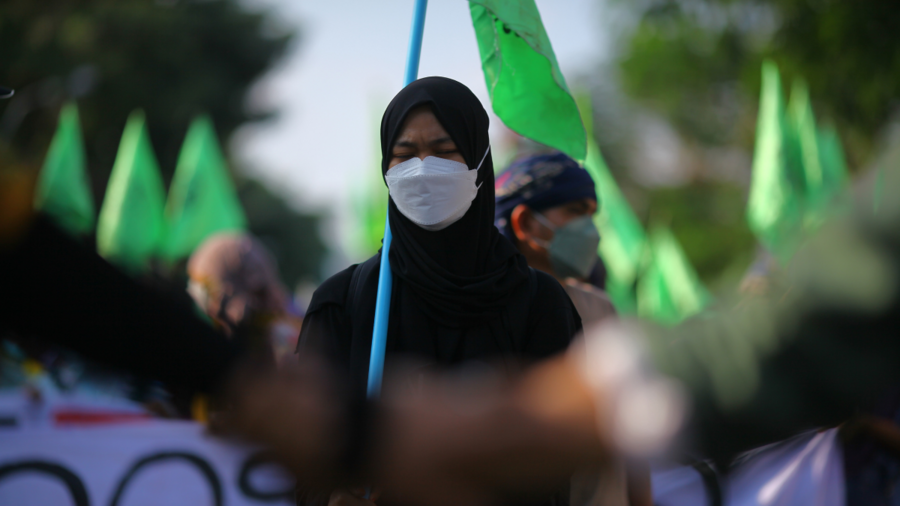The current challenges to fostering sustainable peace in southern Thailand
The path to peacebuilding in southern border provinces in Thailand presents a multitude of challenges, particularly in engaging the Malay Muslim community, whose tightly closed nature has been shaped by years of discriminatory policies. Despite a strong sense of identity passed down through generations, topics such as LGBT* rights, domestic violence, or women’s and children’s rights in public discourse make it arduous for peacebuilding workers to find avenues for communication and involvement. As Aliya Mudmarn, a child protection officer for UNICEF, emphasized, “It takes time to find an entry point to challenge the social norms that may oppress the rights of children and women, so we can communicate and influence them while talking the same language. We want to shift the narrative to promote an enabling environment especially for children and women to grow and thrive, and we have already seen progress in the last five years.”
Interplay of economic instability and conflict
Compounding the issue is the economic instability prevalent in the conflict-affected areas in the southern border provinces of Pattani, Yala, and Narathiwat, which have consistently ranked among the top ten poorest provinces in Thailand for many years. Aliya underscored the urgency of addressing these economic challenges, advocating for community involvement in peacebuilding efforts as the future of the region hangs in the balance. Prioritizing education and access to information is paramount, as economic hurdles significantly impede civic participation, amplifying the urgency of inclusive policymaking and data-driven interventions.
Empowering youth voices
Youth engagement is a pivotal aspect of peacebuilding, yet it encounters numerous barriers in southern Thailand. Aliya highlighted the adverse impact of stringent security laws on students and young people, who lack safe spaces to articulate their concerns. While there have been efforts to engage youth, meaningful participation remains elusive, necessitating procedural reforms and concrete actions for tangible progress. Prattana Samransuk, a senior consultant for the Kenan Foundation Asia, echoed the sentiment that locals are best positioned to design peace interventions. She emphasized the indispensable role of community support, particularly from religious leaders, in fostering sustainable peace, affirming that “locals know best”.
Importance of safe spaces and inclusive dialogue
Chayanit Poonyarat, a lecturer at Thammasat University, shed light on the critical role of safe spaces in facilitating political participation and underscored the challenges that universities face in providing them. Her research revealed the nuanced dynamics within southern Thai student networks, where certain topics are off-limits due to security concerns, constraining the scope of discourse. She pointed out how “these organizations need to be sensitive to the dynamics of the events including the ethnic, religious, and age sensitivities which make it hard to design meaningful events”. Despite these limitations, exchanges between young activists serve as a catalyst for innovation and mutual empowerment, signaling a growing desire among the younger generation to intertwine their struggles with broader democratization efforts.
Creating a path forward
While the conflict in southern Thailand persists, Chayanit, Aliya, and Prattana are optimistic about the younger generation's fervor to steer the narrative toward peace and democratization. Their collective efforts underscore the importance of inclusive dialogue, community empowerment, and youth engagement in fostering sustainable peace in the region. As they navigate the intricate web of challenges, their resolve to forge a brighter future through dialogue and collaboration remains unwavering.
*LGBT: Lesbian, Gay, Bisexual and Transgender. We are using this term as it is currently widely used in human rights conversations on sexual orientation and gender identity in many parts of the world, but we would not wish it to be read as exclusive of other cultural concepts, contemporary or historical, to express sexuality and gender, intersex and gender-nonconforming identities.
Aliya Mudmarn, Prattana Samransuk, and Chayanit Poonyarat are Salzburg Global Fellows who are in the third cohort of the Asia Peace Innovators Forum, which shapes long-term peace, stability, and regional cooperation in Asia by building a network of mid-career professionals working in different sectors and countries to exchange knowledge, community-driven approaches, and best practices.


